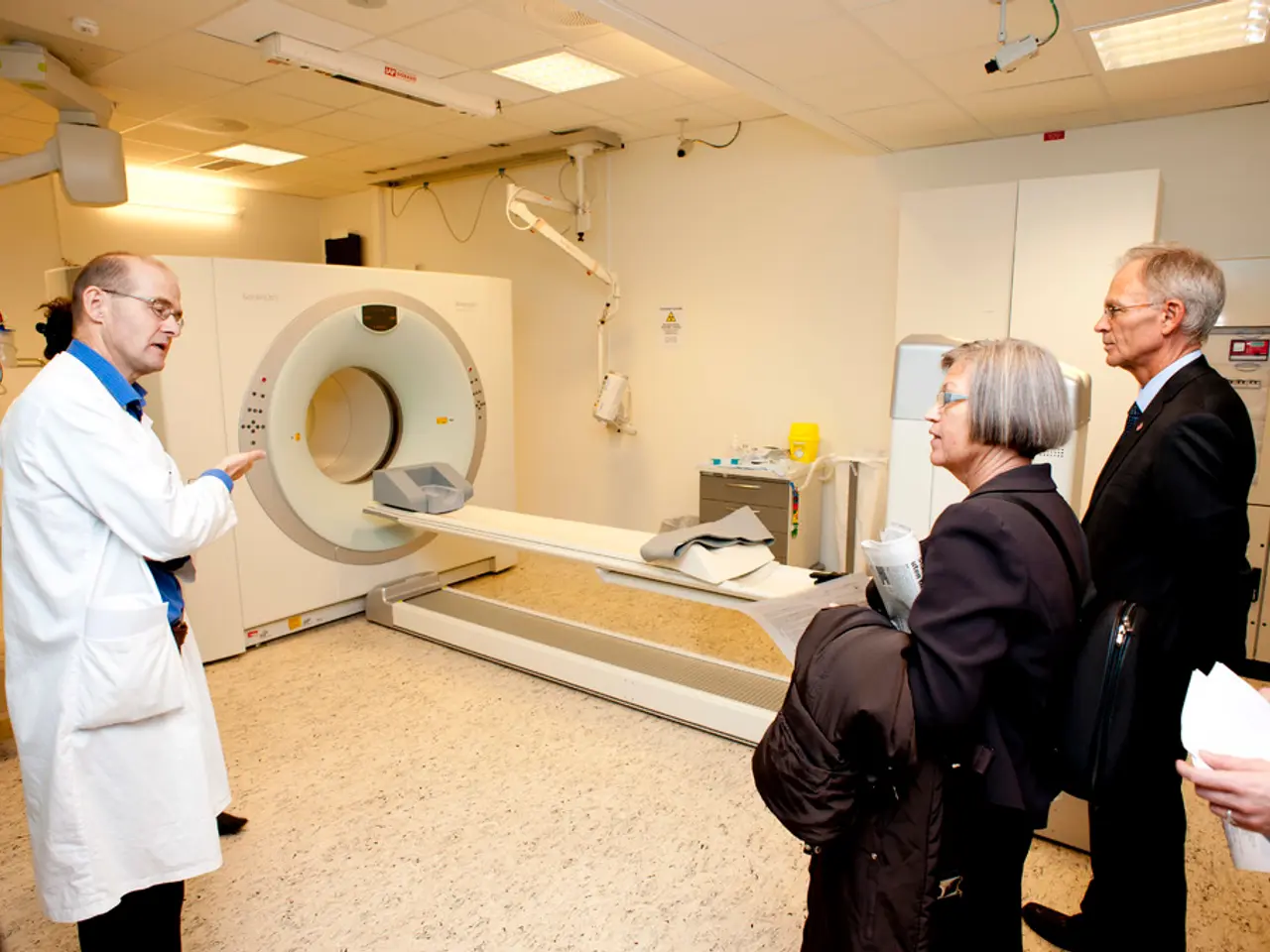Investigating the Impact of Long COVID on Heart Health: Current Understandings and Remaining Enigmas
In the wake of the COVID-19 pandemic, a growing concern is the long-term impact of the disease, particularly on cardiovascular health. Known as post-acute sequelae of SARS-CoV-2 infection (PASC), or long COVID, this condition can have significant consequences for the heart and circulatory system [1][2].
One large U.S. study, analyzing over 150,000 COVID-19 survivors, found a 55% increase in combined cardiovascular outcomes one year post-infection. Conditions such as aortic stiffening, endothelial dysfunction, and sympathetic nervous system overdrive were common among those affected [1][2]. These symptoms indicate persistent cardiovascular impairment, including blood vessel injury, abnormal heart function, and increased strain on the cardiovascular system.
Long COVID cardiovascular manifestations are among the most common and burdensome post-COVID conditions, affecting a wide age range and contributing to growing healthcare challenges [1]. Individuals with long COVID often report a range of cardiovascular symptoms, including chest pain or discomfort, palpitations or irregular heartbeats, shortness of breath, fatigue, dizziness or lightheadedness [3].
However, it is important to note that not all individuals with long COVID will experience cardiovascular symptoms, and the presence of these symptoms does not necessarily indicate the presence of underlying cardiovascular damage [3]. The virus triggers an exaggerated immune response that leads to widespread inflammation throughout the body, including the heart and blood vessels [4]. This chronic inflammation can disrupt normal cardiovascular function and contribute to long-term cardiovascular complications.
Given the potential cardiovascular implications of long COVID, it is important to assess the cardiovascular risk in individuals who have recovered from the acute phase of the infection through a comprehensive evaluation [5]. Medical history review, physical examination, electrocardiogram (ECG), echocardiogram, and blood tests can help identify any underlying cardiovascular damage or dysfunction [5].
The management of long COVID-related cardiovascular complications involves a multidisciplinary approach. Cardiac rehabilitation programs have shown effectiveness in improving cardiac function, reducing symptoms, and enhancing physical endurance [4]. Symptom management and monitoring are crucial to prevent exacerbation and ensure careful management of symptoms such as chest pain, breathlessness, and dizziness [5].
Avoidance of over-exertion is also advised, as many long COVID patients experience post-exertional malaise (PEM), where symptoms worsen after activity [5]. Additionally, interventions targeting vascular health and controlling immune system overactivation are being explored, although specific pharmacological treatments for long COVID cardiovascular effects are still under investigation [3][5].
In conclusion, long COVID can lead to prolonged cardiovascular dysfunction, including vascular damage and autonomic imbalance. The most effective current management combines cardiac rehabilitation, symptom-tailored care, and cautious physical activity to limit further cardiovascular strain. Continuous research is needed to develop targeted pharmacological treatments for these long-term cardiovascular complications [1][2][4][5].
By gaining a better understanding of the effects of long COVID on cardiovascular well-being, we can develop more targeted interventions to improve the long-term health outcomes of individuals affected by the disease. It is crucial for healthcare providers to be aware of these cardiovascular symptoms and monitor patients for any potential cardiovascular complications. Addressing these questions will require ongoing research and collaboration between healthcare providers, researchers, and policymakers.
- The increased cardiovascular outcomes observed in COVID-19 survivors highlight the importance of focusing on health-and-wellness aspects related to cardiovascular health, given the potential long-term implications of the disease.
- Medical-conditions such as aortic stiffening, endothelial dysfunction, and sympathetic nervous system overdrive are chronic-diseases often reported in individuals with long COVID, indicating the need for a more comprehensive lifestyle evaluation to minimize risks and improve care.
- Science, particularly ongoing research, plays a crucial role in understanding long COVID's impact on cardiovascular health and developing targeted treatments and interventions to prevent and manage long-term cardiovascular complications.




